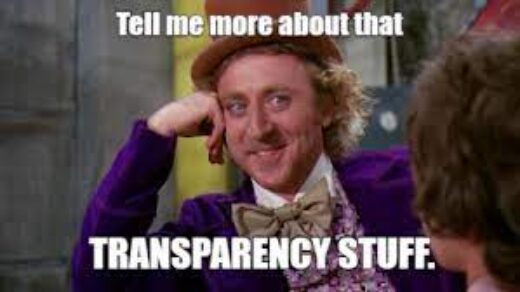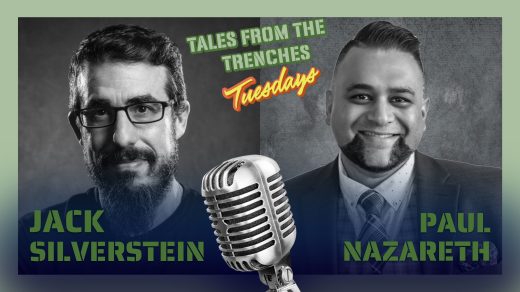
As a fundraiser, I have learned that asking for money is an art form. It requires a delicate balance of strategy, preparation, and understanding of the donor’s needs and interests. Unfortunately, there are common mistakes that many fundraisers make. These mistakes can blow an ask and hinder their efforts to secure much-needed funds. I will discuss some of the top ways to avoid these mistakes and increase your chances of success in your fundraising efforts.
Common mistakes in an ask
One of the biggest mistakes fundraisers make is failing to tailor the ask to the needs and interests of the prospect. Each donor is unique and has specific reasons for supporting a cause. By taking the time to understand what motivates them, you can craft an ask that resonates with their personal values and goals. This requires thorough research on the prospect, their philanthropic interests, and any previous donations they have made. By doing so, you can demonstrate that their contribution will have a meaningful impact and align with their philanthropic priorities.
Another mistake that goes hand in hand with customizing the ask and can sabotage an ask is not being prepared enough. Fundraising is not just about making a compelling case for support; it also involves being well-informed about your organization, its programs, and its impact. When meeting with a potential donor, you should be able to confidently speak about how their contribution will be used and the outcomes it will achieve. Lack of preparation can make you appear unprofessional and undermine the donor’s confidence in your ability to effectively steward their gift.
Soliciting by yourself instead of involving colleagues
Fundraising is a team effort, and involving your colleagues can significantly enhance your solicitation efforts. By bringing in experts from various departments within your organization, you can demonstrate the breadth and depth of your work. This collaborative approach not only provides a more comprehensive view of your organization’s impact but also instills confidence in the donor that their contribution will be well-managed and make a meaningful difference. Additionally, involving colleagues can help you leverage their relationships and knowledge, which can be invaluable when cultivating and stewarding donors. Remember that your job as a fundraiser isn’t to know all the intricacies of the program that you are searching to fund, rather your task is to inspire the prospect. Bringing a “subject expert” along on the solicitation will likely fill the need when it comes to specific program questions. Additionally, staff and volunteers come and go over the life cycle of a charity. By having a donor relationship with only one staff person is a real risk for corporate memory and continuity.
Crafting a compelling case for support
To inspire a donor to give, it is essential to craft a compelling case for support. This involves clearly articulating the need, the impact of the donor’s contribution, and the urgency of the cause. Your case for support should be rooted in data, storytelling, and a strong emotional appeal. By presenting a well-rounded case that appeals both to the donor’s rational and emotional sides, you increase the likelihood of them making a significant contribution. Additionally, it is crucial to tailor your case for support to the specific interests and values of the donor. This shows that you have taken the time to understand their motivations and increases the chances of them connecting with your cause on a deeper level.
Many charities utilize mini-cases — focussing on a specific program or service. This way, the solicitor can use pieces of various cases in an effort to meet the donor’s philanthropic priorities. Always remember that the “sweet spot” is the intersection of a donor’s priorities with your organization’s priorities. If those two priorities are not aligned, you will likely not receive financial support.
Adjusting your agenda to match the donor’s priorities on an ask
Flexibility and adaptability are key when soliciting funds. Donors have their own priorities, and it is essential to be responsive to their needs and interests. While it is important to have an agenda for your fundraising meetings, it is equally important to be willing to adjust it to match the donor’s priorities. By actively listening and understanding their concerns, you can tailor your discussion to address their specific interests. This flexibility demonstrates your commitment to meeting the donor’s needs and increases the chances of a successful ask. If you a thrown a curveball (i.e. a donor doesn’t want to support the program you have just presented) it may be due to a lack of proper research by the fundraising team, or it may just be a difference of priority. Use the time to pivot and find out what truly resonates with the prospect.
Active listening is a powerful tool in fundraising. It involves not only hearing what the donor is saying but also understanding their motivations, concerns, and aspirations. By actively listening, you can gather valuable insights that will inform your approach and tailor your ask accordingly. Avoid the temptation to dominate the conversation and instead create a space for the donor to express themselves fully. This demonstrates respect and shows that you genuinely value their input. By listening attentively, you can build a stronger relationship with the donor and increase the chances of securing their support.
Creating a comfortable and respectful solicitation environment to make the ask
One mistake that can quickly derail an ask is using pressure tactics. Fundraising should be a comfortable and respectful process, where the donor feels valued and appreciated. Avoid any behavior that can be perceived as pushy or manipulative. Instead, create an environment that encourages open and honest dialogue. Respect the donor’s boundaries and be mindful of their comfort level. By creating a solicitation environment that is conducive to trust and respect, you increase the likelihood of a positive outcome. A great takeaway is that the donor doesn’t really care if you have a budget number to “hit” or not — as my son often says, “That is an ish-you not an ish-me.”
Conclusion
In conclusion, effective fundraising asks require careful planning, preparation, and a donor-centric approach. By putting the donor at the center of the ask and demonstrating a genuine commitment to their philanthropic goals, you can build stronger relationships and secure the support needed to advance your organization’s mission.
Until next week.
L’chaim,
jack




